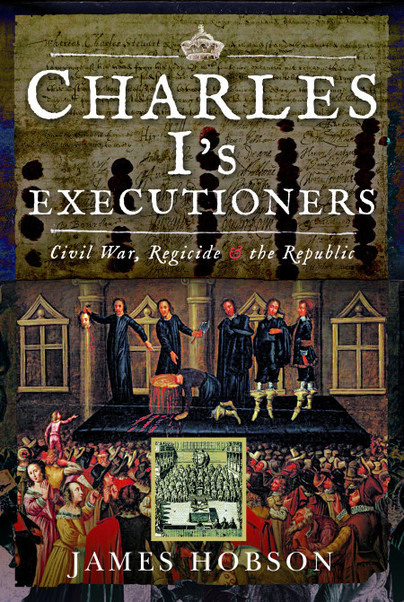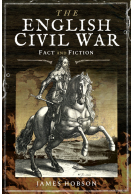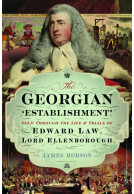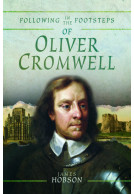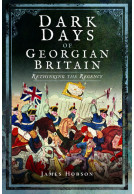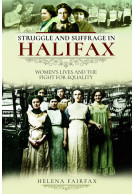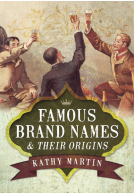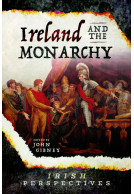Charles I's Executioners (ePub)
Civil War, Regicide and the Republic
Imprint: Pen & Sword History
File Size: 18.3 MB (.epub)
Pages: 224
ISBN: 9781526761859
Published: 4th November 2020
| Other formats available - Buy the Hardback and get the eBook for £1.99! | Price |
|---|---|
| Charles I's Executioners Hardback Add to Basket | £19.99 |
On an icy winter’s day in January 1649, a unique event in English history took place on a scaffold outside of Whitehall: Charles I, King of England, was executed. The king had been held to account and the Divine Right of Kings disregarded. Regicide, a once-unfathomable act, formed the basis of the Commonwealth’s new dawn.
The killers of the king were soldiers, lawyers, Puritans, Republicans and some simply opportunists, all brought together under one infamous banner. While the events surrounding Charles I and Cromwell are well-trodden, the lives of the other fifty-eight men – their backgrounds, ideals and motives – has been sorely neglected.
Their stories are a powerful tale of revenge and a clash of beliefs; their fates determined by that one decision. When Charles II was restored he enacted a deadly wave of retribution against the men who had secured his father’s fate. Some of the regicides pleaded for mercy, many went into hiding or fled abroad; others stoically awaited their sentence. This is their shocking story: the ideals that united them, and the decision that unmade them.
An interesting book and one well-worth adding to your bookshelves.
Stephen Ede-Borrett, The Pike and Shot Society
Hobson manages to thrill... Another great book on the Civil War by James Hobson.
Omne Ignotum Pro Magnifico
Read the full Italian review here
James Hobson takes a look at the other characters who signed the document that led to the execution of the tyrannical King, Charles I, in 1649 following a long and bitter civil war. We all know about Cromwell, of course, and some of the signatories are also well known to us from the annals of the civil war and from the trial records. But there are many more signatories, of whom we know very little indeed, and James's book sets the record straight by examining their lives and how they came to be involved in signing the death warrant for a man who claimed to have been appointed King by God himself. A brilliant book.
Books Monthly
Rating: 5 out of 5 stars
NetGalley, Sue Andrews
An excellent, very readable, account of the events of the English Civil War and its aftermath. The author set out to provide information on each of the 59 men who signed Charles I's warrant of execution. The result could easily have been a muddled, repetitive account. Instead the author handles the information in a very clear and professional manner; the men are grouped sensibly - some chapters deal with up to 6 names, some only one. While detailing their lives and motives (where possible) the author takes the reader through the events of the Civil War and the Restoration of the monarchy, giving a great insight into life and beliefs of that time.
It is fascinating to learn more about who signed the death warrant - clearly some important people ducked the issue, and some men were brought forward almost to make up the numbers. Signing the document had serious impact on their future lives, as well as on the course of history itself. The author describes their lives, where he can - some were real nonentities about whom little is really known - and explains what they did after. Some prospered, some were brought to trial and some died horrible deaths for their beliefs.
Thoroughly enjoyable and informative, a scholarly and interesting book for anyone at all interested in learning more about the Civil War and the men who fought and died.
If you'd like to know more about the people who fought on the side of Parliament in the Civil War, and understand their motivations, this book is well worth reading.
Lost Cousins
Read the full review here
I recommend this book.I have a strong feeling that this will be a valuable reference work for a long time to come.
aBurntShip, 17th century War and Literature
Read the full review here
An event is history that stands out against many of the time, on a scaffold in Whitehall Charles I, King of England was executed held to account and the divine right of kings was disregarded. The killers of the king were Puritans, lawyers, soldiers, republicans and some even opportunists. When his son Charles II was restored to the throne he enacted a deadly wave of retribution against these men. This is their shocking story and looks at the ideals of what united them and the decision that unmade them.
UK Historian
What then comes across in the book which looks at a small group of men in each chapter of different profession is that these men decided up on this through being influenced by many factors such as religion, laws, politics, money and advancement. What is interesting to read is how most these 59 men either lost money, died or some even fled the country. I would say that this is good book and a very interesting read, certainly worthwhile for someone interested in the subject or the Charles I. The book seems to be very well researched by the author and I think this is echoed by the list of sources mentioned at the back of the book.
Read the full review here
This is well-worth reading if you are interested in King Charles 1, and the English Civil War.
NetGalley, Lisa Sanderson
I really enjoyed reading this book, I enjoyed that this was a nonfiction historical book. The author was able to research this well and well written.
NetGalley, Kay McLeer
Loved this book. I adore history and the dark side of it and this book did not disappoint at all and really found it fascinating. If you like dark history you will like this.
NetGalley, Louise Corrigan
The Stuart period of history hasn't really been within my history purview - I know enough about it but have not really researched further, preferring to focus instead on the traditional medieval period. Having said that, I love historical fiction, and with no real time boundaries, I have found myself wandering into the realm of the Stuarts over the past year or so.
NetGalley, Melisende d'Outremer
The regicides of Charles I featured in a number of historical fiction accounts of the period, and I became familiar with a few of the names - but not all, and certainly not their fates. So, after picking up a copy of Charles Spenser's "Killer of the King" I took the plunge, and was so pleased to be then able to read Hobson's account.
This is a more simplified version - it is not strictly a biography of the nearly 135 participants in the trial and execution of King Charles I of England, nor does it go into any great detail about the English Civil War (it is assumed that the reader has some fore-knowledge). What Hobson has done instead is present a series of themed vignettes of the 59 who actually signed the warrant of execution for King Charles I of England.
What I discovered was incredibly interesting. The men came mostly from the gentry class; their motivations varied from personal, political, economic, and religious; not all were active to the same capacity; not all were guilty to the same degrees; not all did it for "honourable" reasons. I also learnt that where their signatures were placed on the document was in no way indicative of their importance. The vignettes are not overly detailed - they cover off each individual's family background, motivation, career (pre and post execution) and their fate after the restoration of the English monarchy under Charles II.
Unless you are a keen student of the period, many of names will be very unfamiliar - and even Hobson questions why some were included on the list of those to be executed for treason when some who were more active participants got off scott free. What cannot be taken away from these men - of whom only nine suffered to be hanged, drawn and quartered, was that they all died well, believing in and in some cases, becoming martyrs, for their cause.
If you are looking to add to your knowledge for the English Civil War and the Restoration, you could do no better than to add this book to your recommended reading list. There are many small snippets that have intrigued me and now require further investigation.
Hobson's book provides key biographical information points for the politicians behind the radical wing of the English Civil War and those who ultimately pushed for Cromwell and the execution of Charles. The book illustrates how revolutionary those ideas were and Hobson's language is both engaging and digestible.
NetGalley, Shonda Wilson
Love history books and this one did not disappoint. Well researched. Amazing what people would/will do all for religion. I learning quite a bit from this book.
NetGalley, Cyn Farabee
In January of 1649, Charles I was publicly executed by his own people, in his own country, England. This fascinating book examines a vantage point I hadn't thought of which is of the fifty nine English and Welsh men who signed the king's death warrant.
NetGalley, Brenda Carleton
The range of men include rich and poor, educated and uneducated, army officers and MPs. Most were gentry to varying degrees from a cobbler and a merchant to a lawyer to an aristocrat. A few were diplomatic and kind and cared about the welfare of people, especially the poor, but others were cruel and didn't even acknowledge the poor.
What nearly all these regicides have in common is religion (Puritans) and politics (republicans). A few definitely improved financially which was a motivator to begin with. After the execution many lost money, too. All were committed to the cause, at least until many were sentenced to horrific death for treason. Some remained courageous and were martyrs but some (understandably) were cowards and tried to flee or plead ignorance. A few died of comparatively "easy" deaths by natural causes in obscurity.
Very few names of the wives are known but Lucy Hutchinson thankfully wrote her husband's memoirs which give incredible insight into the people and events. After sentencing and imprisonment, a few wives successfully pled for leniency for their husbands.
This book is thoroughly researched and contains illustrations of some of these men. I recommend it to those interested in this time era and who wish a unique look at the men who brought about this execution which changed British history. The author answered questions I didn't realize I had!
About James Hobson
James Hobson has taught and written about History as teacher for twenty-five years. His first book was The Dark Days of Georgian Britain, a history of the Regency period. His other Pen and Sword books are about the English Civil war. His new book extends his interest in radicalism and protest into the Victorian era.
English Parliamentary army captures King Charles I
30th November 1648
English Parliamentary army captures King Charles I
The English Rump Parliament votes to put Charles I on trial for treason and other "high crimes"
6th January 1649
The English Rump Parliament votes to put Charles I on trial for treason and other "high crimes"
The execution of Charles I
30th January 1649
The execution of Charles I by beheading occurred on Tuesday 30 January 1649 outside the Banqueting House in Whitehall. This trial and execution were the first of their kind.







